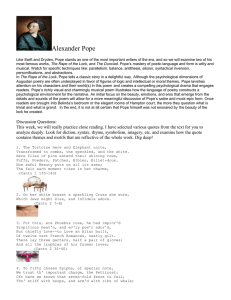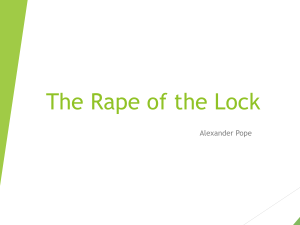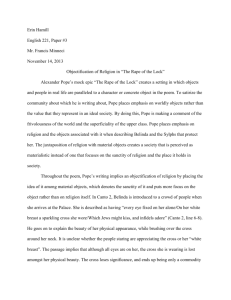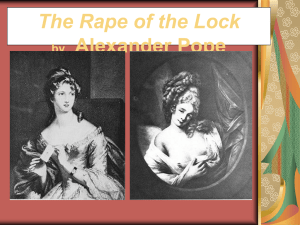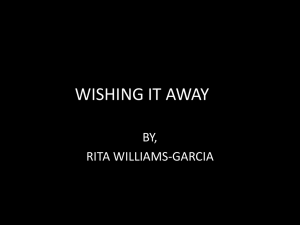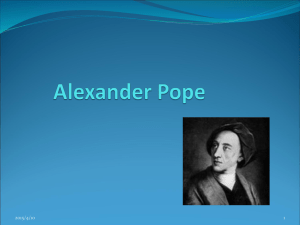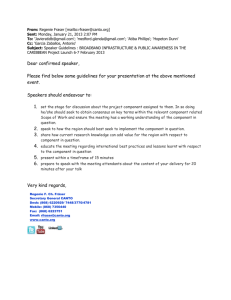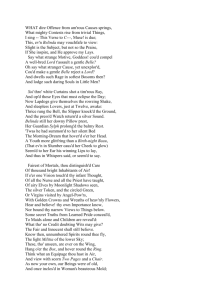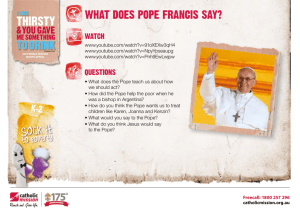The Rape of the Lock Study Guide | High School English
advertisement
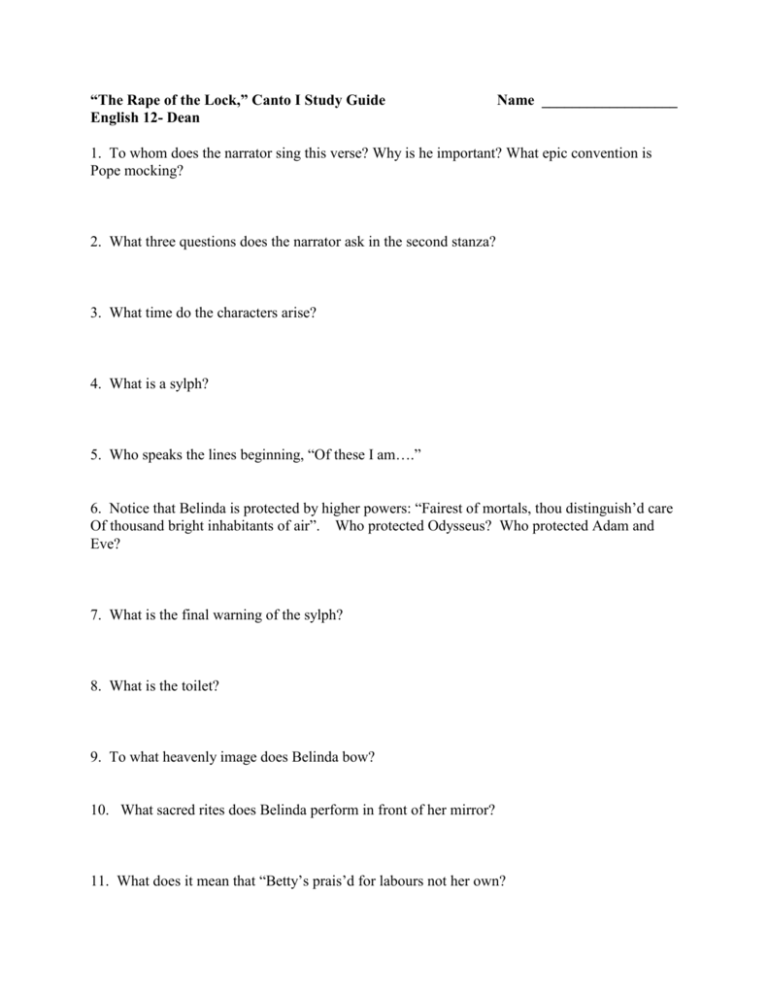
“The Rape of the Lock,” Canto I Study Guide English 12- Dean Name __________________ 1. To whom does the narrator sing this verse? Why is he important? What epic convention is Pope mocking? 2. What three questions does the narrator ask in the second stanza? 3. What time do the characters arise? 4. What is a sylph? 5. Who speaks the lines beginning, “Of these I am….” 6. Notice that Belinda is protected by higher powers: “Fairest of mortals, thou distinguish’d care Of thousand bright inhabitants of air”. Who protected Odysseus? Who protected Adam and Eve? 7. What is the final warning of the sylph? 8. What is the toilet? 9. To what heavenly image does Belinda bow? 10. What sacred rites does Belinda perform in front of her mirror? 11. What does it mean that “Betty’s prais’d for labours not her own? “The Rape of the Lock,” Canto III Study Guide Dean- English 12 Name _________________ 1. Where does the group travel (what “majestic frame” do they visit)? ****This is the great castle that King Henry VII made famous*** 2. What is the double meaning of the word take in the second? What two unequal things is Pope equating by using the same verb take? 3. What does it mean that the “long labors of the toilet” have ceased? Who is Pope mocking? 4. How will these “knights” decide their doom? To what is Pope comparing this game of ombre? 5. What process is described in the stanza beginning with “The silver lamp”? How is this a good example of a mock epic? 6. Clarissa is a jealous lady-in-waiting. What weapon does she draw? What language does Pope use to mock this scenario? 7. What do one thousand sprites do? How do they try to save Belinda? 8. What happened to the “wretched Sylph” who tried to interfere? 9. What unequal things does Pope equate at the close of “Canto Three?” “The Rape of the Lock,” Canto IV- V Study Guide English 12- Dean Name __________________ 1. To what does Pope compare Belinda’s rage, resentment and despair? 2. Who laments the loss of the lock as much as Belinda herself? At the beginning of Canto IV Umbriel, one of Belinda’s protective sylphs descends into the underworld to a place called “The Cave of Spleen.” In the cave Umbriel meets the goddess of spleen and offers her “spleenwort” as a charm. In return he receives a bag of “sighs, sobs, and passions”: and a vial of “soft sobs, melting griefs, and a flowing tears.” This mirrors the gift Odysseus receives, a bag of winds so that he may have a safe voyage home. Umbriel returns and pours the bag over Belinda and her friend. At the end of the Canto IV Belinda confronts the Baron who is unwilling to listen to her; however, the other guests at the tea party share tears of pity. 3. Canto V includes the heroic battle. What are some of the weapons used in the battle? 4. What does Belinda use to attack the Baron? 5. What ridiculous request does Belinda make of the Baron? 6. What happens to the lock of hair? 7. How could the resolution of the poem satisfy Belinda (Arabella)? 8. Look over the mock epic. Find at least three characteristics of satire that Pope uses. List them below
